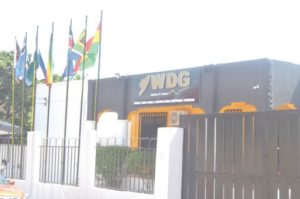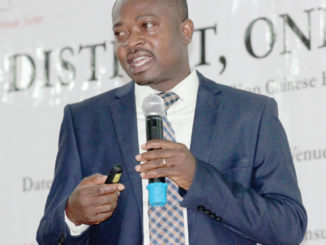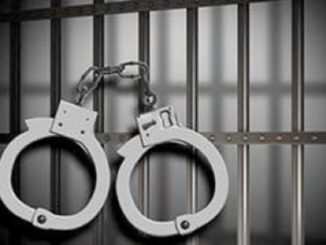The Economic and Organised Crime Office (EOC0) has nabbed two directors of Wealth Drive Ghana Limited for operating a finance house without a licence from the Bank of Ghana (BoG) and the Securities and Exchange Commission (SEC).
The two, Michael Badu Mpere and Gideon Nketiah, were receiving deposits from the public without regulatory permits.
A Deputy Executive Director of EOCO in charge of Operations, Mr Samuel Nana Antwi, said in an interview on Friday, October 5, 2018 that after a thorough search of their offices, customer applications forms, agreement certificates and a list of customers’ payment schedules were retrieved.
“They admitted to operating a finance house without the requisite licences from the BoG and the SEC when we interrogated them”, Mr Antwi said.
“They have also indicated that Wealth Drive Ghana is a subsidiary of Wealth Drive South Africa,” the deputy EOCO boss added.
Modus operandi
Wealth Drive Ghana takes deposits through referrals from other customers and these are traded on the South African stock market.
The company has, since the beginning of the year when it started operations, about a 1,000-customer base and already made some interest payments to some customers.
Customers pay their investment deposits into the company’s account in a bank and show evidence of payment before they fill forms to qualify for interest payments.
Mr Antwi said the funds mobilised from customers in Ghana were then transferred to the parent company in South Africa where the money was traded in other foreign currencies on the South African Stock Exchange.
At the last check, he said, the company had paid interest of 20 to 35 per cent every month to customers on a minimum deposit of GHc5,000.
Registration date
Wealth Drive Ghana was incorporated at the Registrar-General’s Department on February 1, 2018 to operate as an import and export company and later amended the nature of its business to include the management of funds and forex trading.
Background
The Bank of Ghana (BoG) has, for some time now, been battling illegal finance houses as part of plans to sanitise the industry.
The reforms are expected to, among other things, provide a comprehensive plan by the central bank to improve activities in the industry.
They come on the back of reports about customers losing their investments to some microfinance institutions when the latter’s operations are suspended over inefficiencies.
In a publication in April, the BoG listed microfinance companies that are in good standing for the information of the public.
According to the publication, there are 319 microfinance institutions.
Breakdown of companies
A breakdown shows that there are 40 money-lending institutions, six financial NGOs, as well as 273 microfinance institutions.
Already, the Governor of the Bank of Ghana, Dr Ernest Addison, has served notice that the central bank will not issue any licences this year.
According to Dr Addison, that was to allow the central bank to strengthen control and supervision of the activities of the financial institutions.
In response, the microfinance association has lauded the move by the regulator, saying it will help identify non-complying institutions and sanction them accordingly.
–
Daily Graphic




